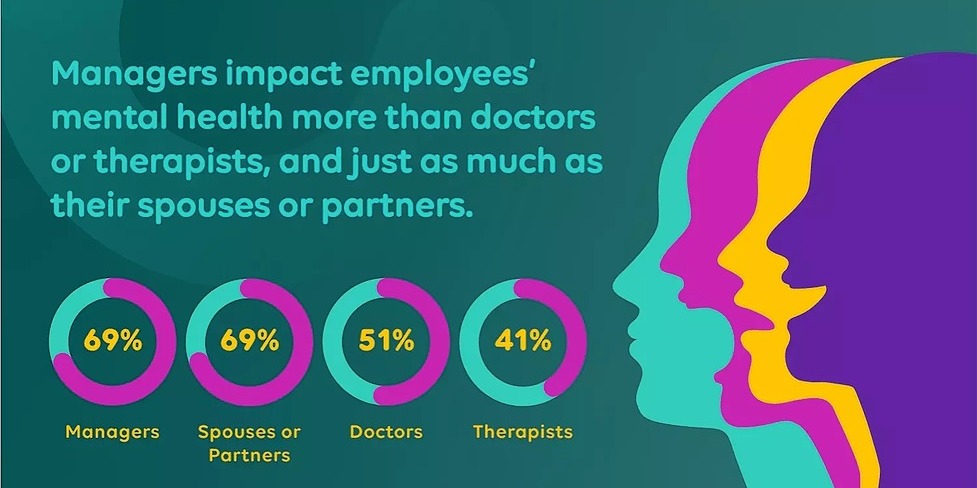Mental Health At Work:
- prevent work-related mental health conditions by preventing the risks to mental health at work;
- protect and promote mental health at work;
- support workers with mental health conditions to participate and thrive in work; and
- create an enabling environment for change.
Action to address mental health at work should be done with the meaningful involvement of workers and their representatives, and persons with lived experience of mental health conditions.
Prevent work-related mental health conditions
Preventing mental health conditions at work is about managing psychosocial risks in the workplace. WHO recommends employers do this by implementing organizational interventions that directly target working conditions and environments. Organizational interventions are those that assess, and then mitigate, modify or remove workplace risks to mental health. Organizational interventions include, for example, providing flexible working arrangements, or implementing frameworks to deal with violence and harassment at work.
Protect and promote mental health at work
Protecting and promoting mental health at work is about strengthening capacities to recognize and act on mental health conditions at work, particularly for persons responsible for the supervision of others, such as managers.
To protect mental health, WHO recommends:
- manager training for mental health, which helps managers recognize and respond to supervisees experiencing emotional distress; builds interpersonal skills like open communication and active listening; and fosters better understanding of how job stressors affect mental health and can be managed;
- training for workers in mental health literacy and awareness,toimprove knowledge of mental health and reduce stigma against mental health conditions at work; and
- interventions for individuals to build skills to manage stress and reduce mental health symptoms, including psychosocial interventions and opportunities for leisure-based physical activity.
Support people with mental health conditions to participate in and thrive at work
People living with mental health conditions have a right to participate in work fully and fairly. The UN Convention on the Rights of Persons with Disabilities provides an international agreement for promoting the rights of people with disabilities (including psychosocial disabilities), including at work. WHO recommends three interventions to support people with mental health conditions gain, sustain and participate in work:
- Reasonable accommodations at work adapt working environments to the capacities, needs and preferences of a worker with a mental health condition. They may include giving individual workers flexible working hours, extra time to complete tasks, modified assignments to reduce stress, time off for health appointments or regular supportive meetings with supervisors.
- Return-to-work programmes combine work-directed care (like reasonable accommodations or phased re-entry to work) with ongoing clinical care to support workers in meaningfully returning to work after an absence associated with mental health conditions, while also reducing mental health symptoms.
- Supported employment initiatives help people with severe mental health conditions to get into paid work and maintain their time on work through continue to provide mental health and vocational support.
Create an enabling environment for change
Both governments and employers, in consultation with key stakeholders, can help improve mental health at work by creating an enabling environment for change. In practice this means strengthening:
- Leadership and commitment to mental health at work, for example by integrating mental health at work into relevant policies.
- Investment of sufficient funds and resources, for example by establishing dedicated budgets for actions to improve mental health at work and making mental health and employment services available to lower-resourced enterprises.
- Rights to participate in work, for example by aligning employment laws and regulations with international human rights instruments and implementing non-discrimination policies at work.
- Integration of mental health at work across sectors, for example by embedding mental health into existing systems for occupational safety and health.
- Participation of workers in decision-making, for example by holding meaningful and timely consultations with workers, their representatives and people with lived experience of mental health conditions.
- Evidence on psychosocial risks and effectiveness of interventions, for example by ensuring that all guidance and action on mental health at work is based on the latest evidence.
- Compliance with laws, regulations and recommendations, for example by integrating mental health into the responsibilities of national labour inspectorates and other compliance mechanisms.
For full article refer to WHO organization news room fact sheets.
https://www.who.int/













